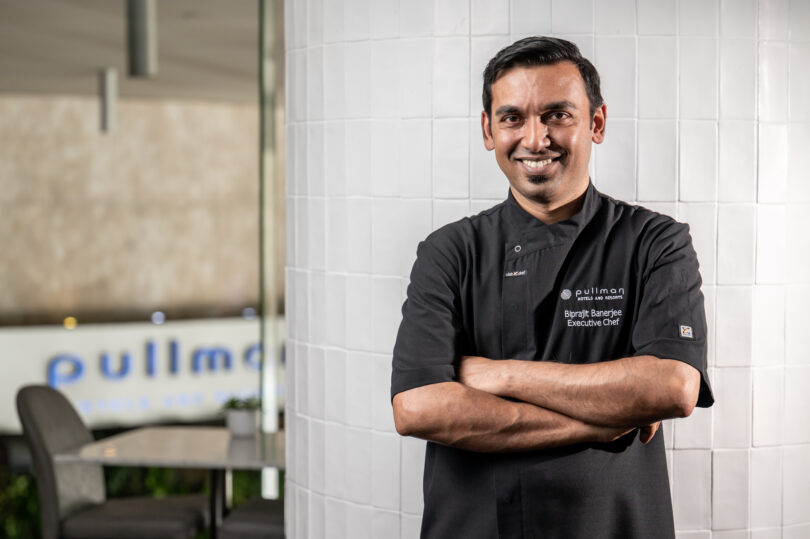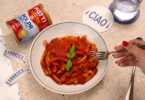Meet the Chef -Interview with Chef at Windows on the Park,Pullman Hyde Park
–Interview with Executive Chef Biprajit Banerjee of the Windows on the Park,Pullman Hyde Park
1. What is your culinary background and experience?
I have been working in this industry for 20 years. This is the 3 rd Country I have worked in. I started my career for the Hyatt in India. Then I moved to Qatar. There I was the pre-opening member for 1 st W Hotel in the Middle East. I worked for 3 Star Michelin star chef Jean George
Vongerichten where we opened his Contemporary European Restaurant Market by Jean George.
I also worked at Southeast Asian Restaurant Spice Market by Jean George.
I have worked in The Star casino at Garden Buffet. Playing an integral part in the successful launch of Harvest Buffet (14 million dollar renovation)
Worked in the beautiful Resort at Inverloch for RACV.
2. What inspired you to become a chef?
Culinary Creativity and exploration are the 2 major reasons for me to become a chef. Got exposed to food at a very early age. Cooking and feeding people provided me immense happiness at a very early age.I soon realised how different cultures consume food. This was very exciting for me. This sparked curiosity in me and I began exploring different cultures and their cuisines.
3. What cuisines or cooking styles are you most passionate about, and why?
At this stage, I am very interested in the Native ingredients of Australia, so I always try to incorporate as much as possible in my cooking.
One more thing that excites me is Molecular Gastronomy. The chemistry of food is very fascinating and being a past science student this phenomenon always excites me.

4. How do you stay updated on current food trends and industry developments?
Through friends from around the world, food journals, attending industry events etc.
5. Biggest achievement or career highlight?
Opening of Contemporary European Restaurant Market by Jean George. Relaunching of 500 seater Buffet restaurant Harvest Buffet at The Star.
6. How do you ensure consistency and quality in the dishes you prepare?
Every dish that is prepared in my kitchen has a standard recipe. The team is trained around this and they must use these recipes as a “Bible”. Constantly training the team and ensuring they understand why measuring ingredients is such an important part in maintaining standards.
7. How do you handle feedback or criticism from customers or colleagues?
Feedback is very important for development. A positive comment motivates me and my team just as much as a piece of constructive feedback as this helps us continue to develop our offering. Both types of feedback are very important to me.
8. What is your approach to managing food costs and minimising waste in the kitchen?
A few important aspects of managing food costs and minimising wastage are:
– Menu planning: Using seasonal and local ingredients, cross-utilisation of shared
ingredients, and portion control.
– Supplier relationship: Negotiation for better price, bulk purchasing, local sourcing
– Efficient preparation technique: Batch cooking, pre portioning of ingredients, ongoing
training of staff.
– Menu engineering
– Customer feedback and demand forecasting.
9. What is your favourite type of cuisine / dish to cook?
Contemporary European cuisine Australian cuisine with native ingredients Windows On The Park is a fusion of these flavours.
10. What is your favourite dish to eat?
Any seafood.
11. Can you share your philosophy on food presentation and plating?
Strive for simplicity in presentation, allowing the main ingredients to shine without unnecessary embellishments. Attention to detail, it should have a perfect balance of flavour and texture.
12. What do you believe sets you apart from other chefs?
I have a huge passion for culinary innovation. I am committed to sustainability. I always go for seasonal and local produce which is why the menu at Windows On The Park will change multiple times a year. I believe my team is my biggest strength, so I invest a lot of time in mentoring and motivating them.
13. What is a common misconception around cooking for restaurants?
A common misconception around cooking for restaurants is that it is all about creativity and glamorous food presentations, much like what is often portrayed on cooking shows and in the media. While creativity and presentation are certainly important aspects of restaurant cooking, the reality is far more complex. There is lots of hard work, handling high-pressure situations, teamwork, communication, business acumen and continuous learning.
14. How do you describe your overall cooking philosophy?
My overall cooking philosophy can be described as a harmonious blend of creativity, sustainability, and a deep respect for ingredients.
I believe ANYONE CAN COOK. The secret ingredient is to cook from the heart and that will come through in the final dish.






